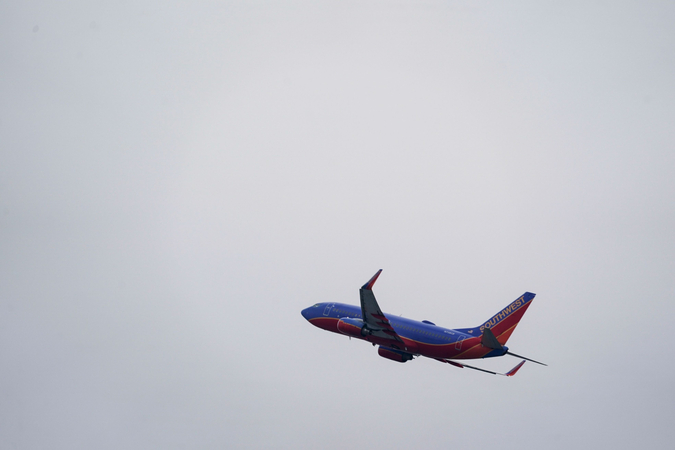Air travel was down significantly this year. Climate activists hope it stays this way.

Ariella Granett wanted people to stop flying in 2020. Just not this way.
"The pandemic was not the way we were hoping to reduce air travel," Granett, co-founder of Flight Free USA, said in an email. "But I think there is a lot to learn from it."
According to an outlook from the International Air Transport Association, the number of air travelers in 2020 is expected to drop more than 60% to 1.8 billion, about the same number of people who flew in 2003. Next year, the group projects that number will increase to 2.8 billion - still far less than the 4.5 billion who flew in 2019. Airlines have slashed routes and furloughed workers, and some have gone out of business.
Those who advocate flight-free living have been grounded, in some cases for years, by choice. And in a year when so many more have been forced to stay put because of the novel coronavirus, leaders of the fly-less movement are hopeful that people, businesses and institutions will reconsider their behavior post-pandemic - and treat climate change as an emergency.
"Regardless of the pandemic, climate change is like the elephant in the room," Granett, an architect who stopped flying two years ago, said in an interview. "It's huge and we're hurtling toward this cliff, toward this point of no return. It makes the pandemic seem like a little trial run."
Magdalena Heuwieser, one of the founders of the Vienna-based network Stay Grounded, which advocates for a reduction in aviation, said she expects to see a continued rethinking of business travel moving forward.
"Companies just realized that it's cheaper to do online conferencing ... employees realized that it's less stressful," she said. "It's something that I think will not jump back to previous levels."
Climate scientist Peter Kalmus, founder of the site NoFlyClimateSci, said he has urged the American Geophysical Union in the past to hold its big fall meeting at least in part virtually.
"Now it's a completely virtual meeting by force," he said - and he thinks there's potential to do the same in the future, maybe even a hybrid with regional groups meeting in person and others joining remotely.
"I think we can even do virtual meetings better than this," Kalmus said. "This is a place where technology really should be shining."
As hard-hit airlines continue to seek help from governments after receiving billions of dollars in aid earlier in the pandemic, Heuwieser cautioned that bailouts should come with climate change in mind.
"We worry that this will jump back to pollution as usual if structural changes are not imposed right now - if we don't rather use this bailout money for recovery packages to finance living wage basic income for workers who are losing their jobs, social protection, retraining programs, creation of jobs in climate safe sectors and foster safe alternatives to flying," said Heuwieser, who is based in Germany.
She said governments should be investing in better, more comfortable and attractive train services, for example.
Once the pandemic is over, the fly-less community hopes trains and other forms of slower travel will appeal to those who are eager to get out and explore again.
"This is not the optimal situation for flying less," said Kalmus, who lives in Southern California and hasn't flown since 2012. "Hopefully we can fly less in a more joyful way than this because we'll still be able to travel, we'll still be able to meet in groups. This is flying less superimposed onto all this other stuff that makes life so difficult for us."
